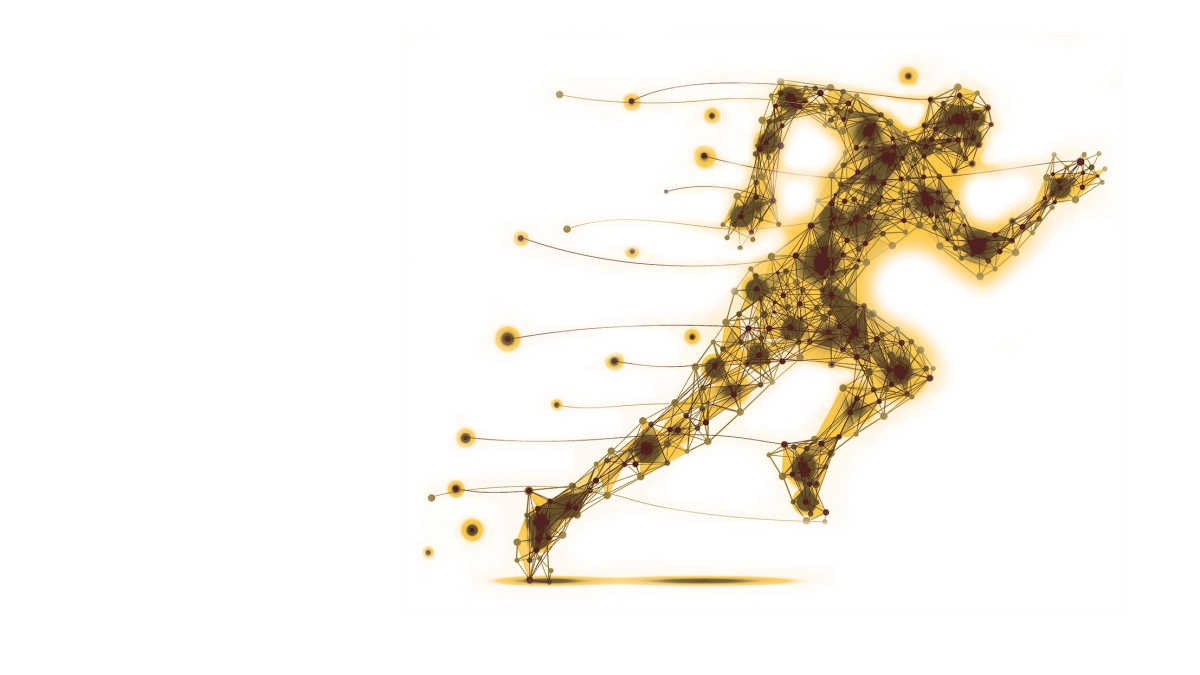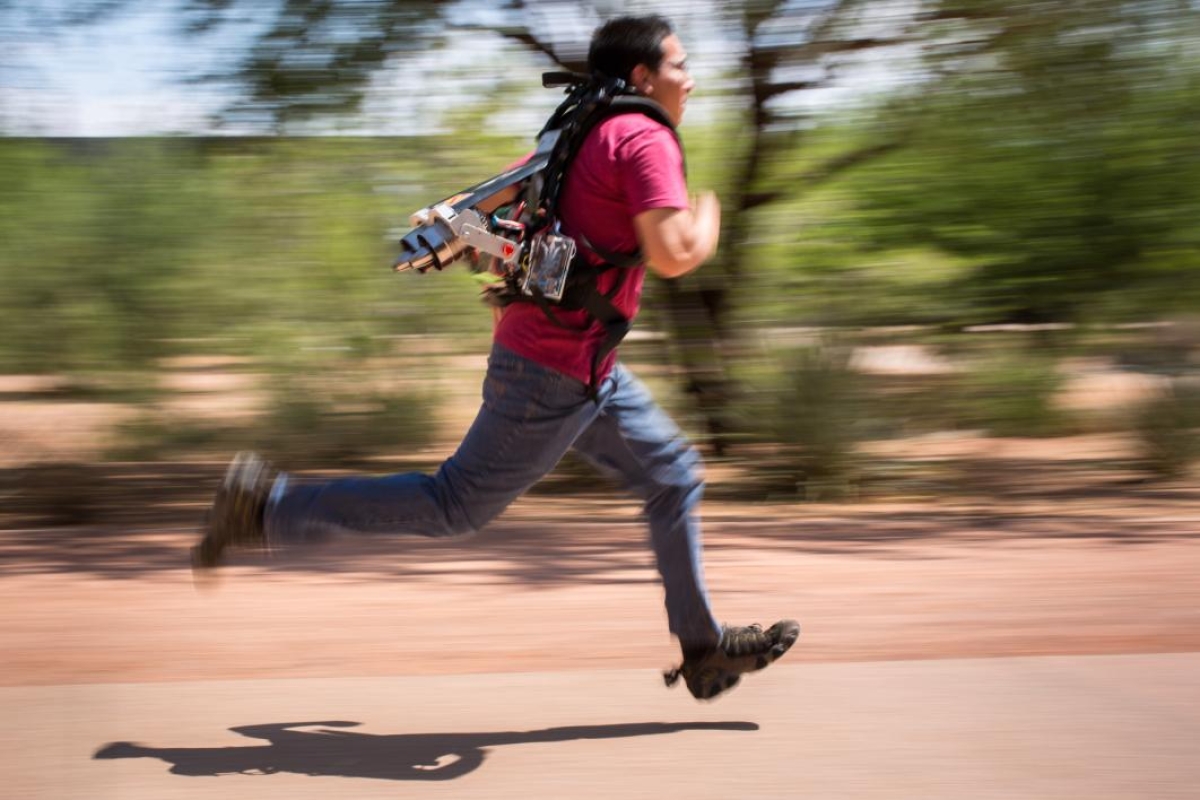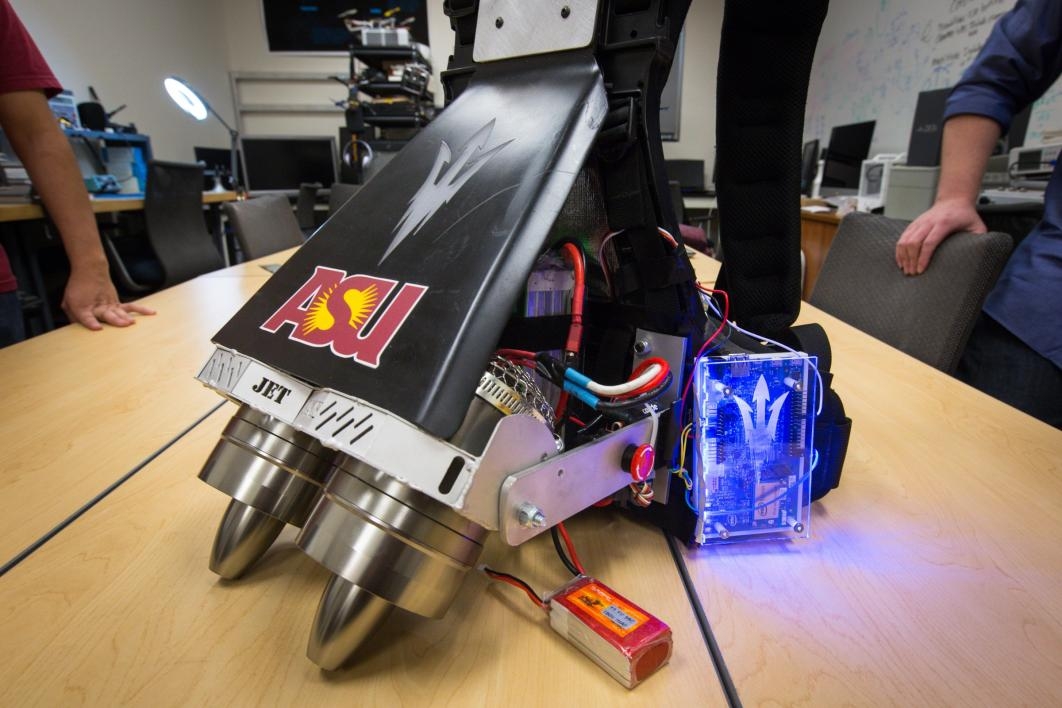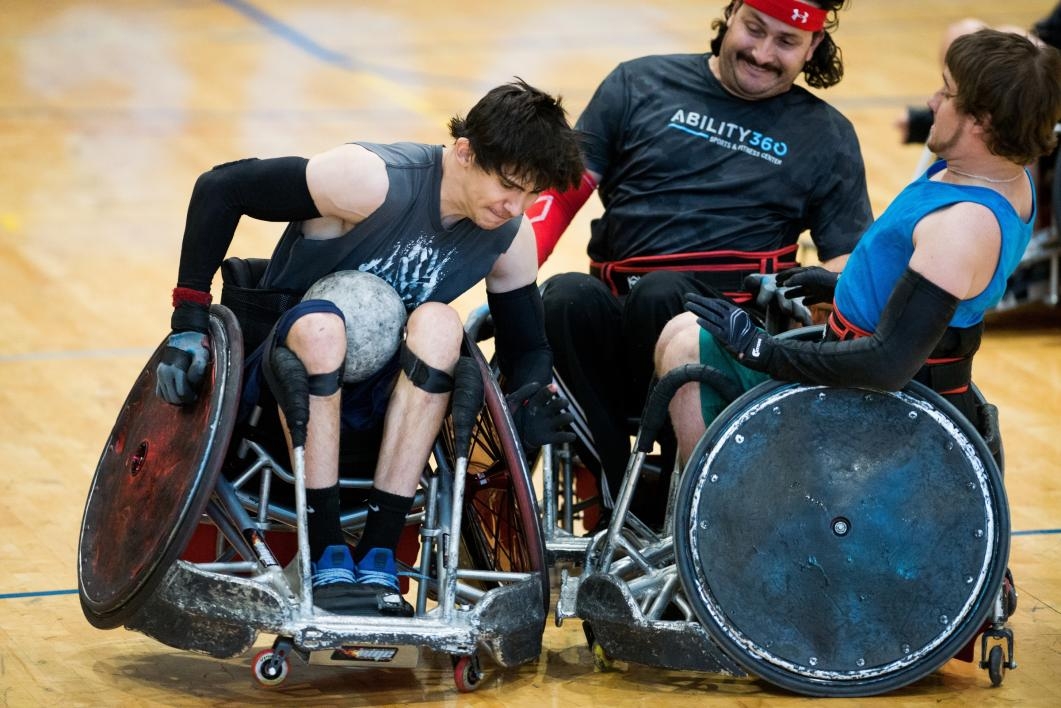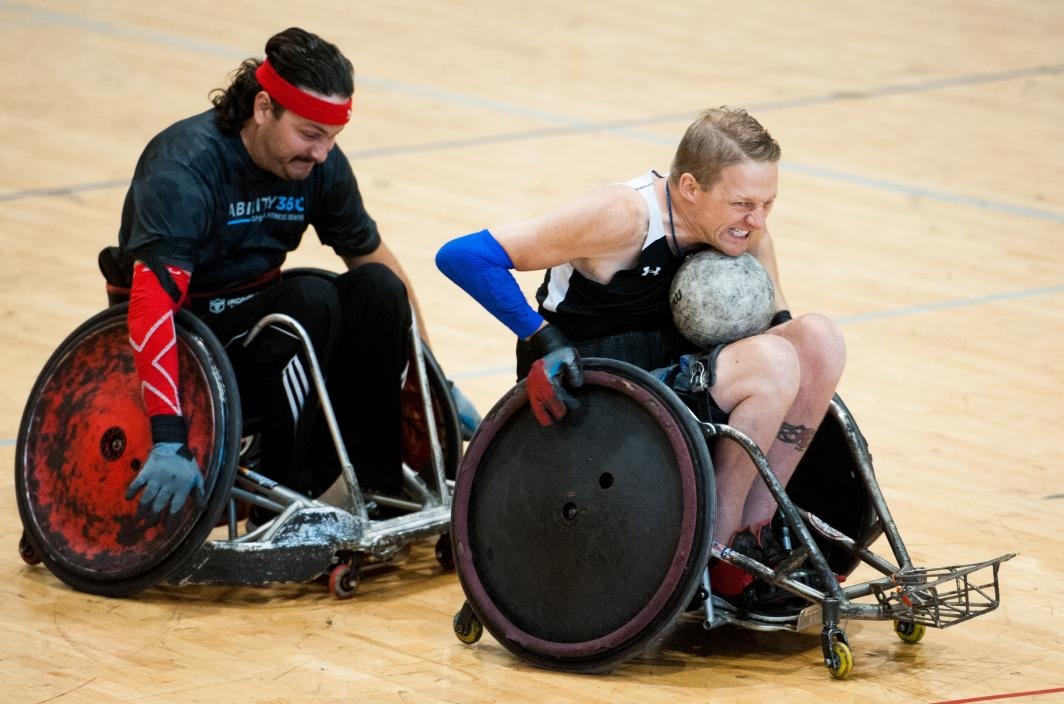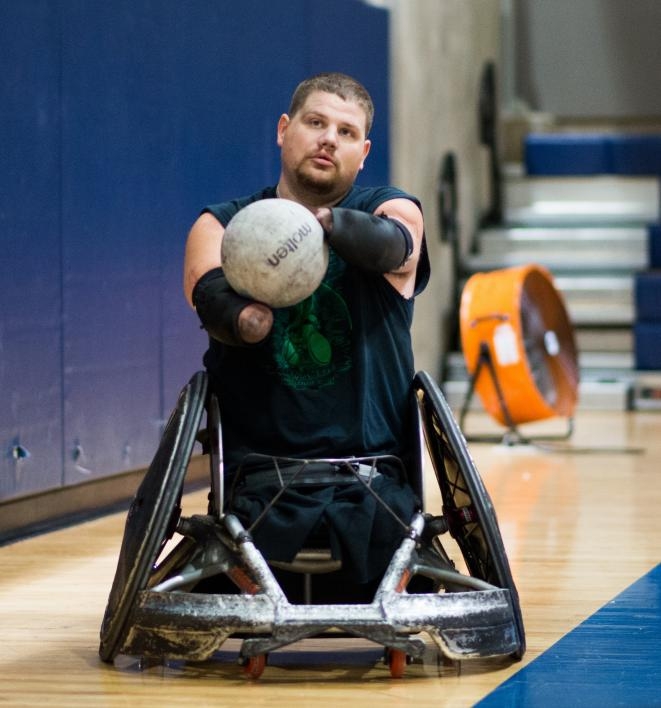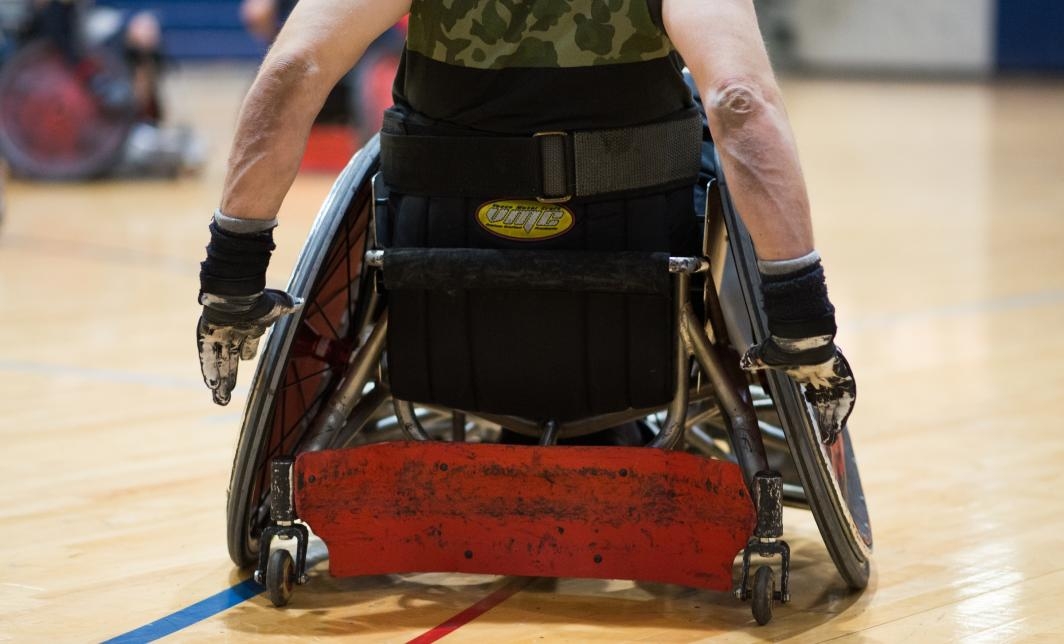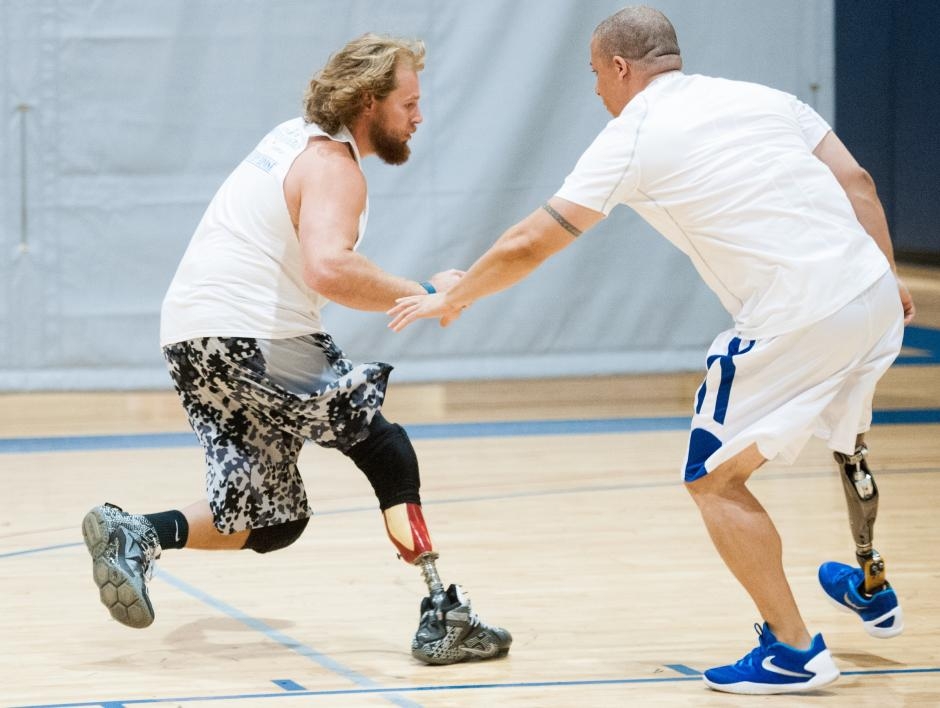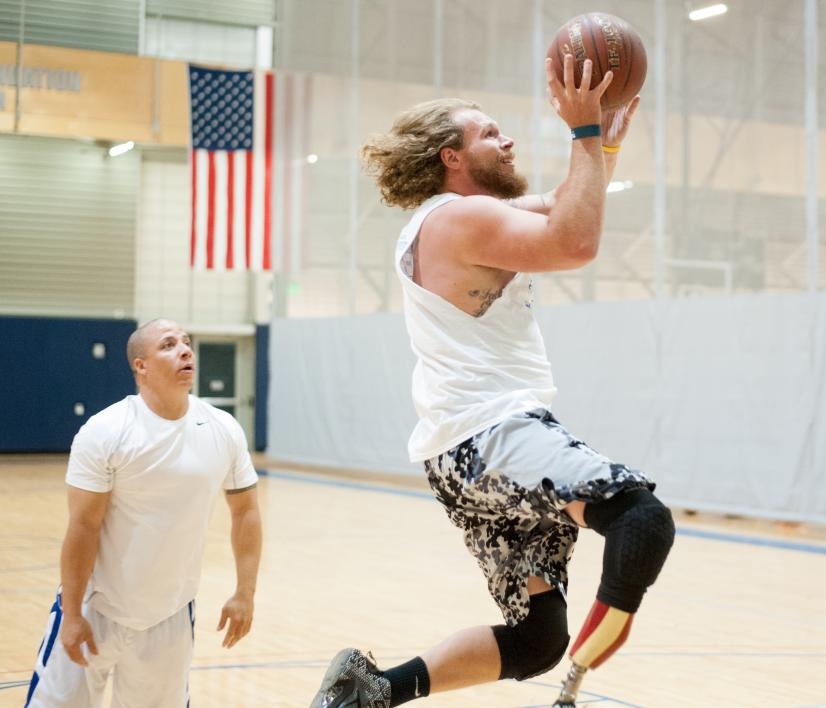The chairs of the wheelchair rugby players look like they were buried in a rockslide: nicked, scratched, dented and dinged. The wheels are black and red, scarred and splintered as a Viking shield.
The players are quick. Nick Springer darts in and out of openings, pivoting and reversing in an eye blink. He is a quadruple amputee. He is one of the fastest men on the court.
On the court they slam into each other with impacts that blast the gym. If two of these chairs came together on your ankle at full force, they’d snap it in two. They hit that hard.
They are man melded with machine. They are the future, now. Since double amputee Oscar Pistorius won the fight to compete in the Olympics against people without disabilities, athletes with prosthetics will become more and more common. Future sports won’t be a battle of humans vs. robots, but natural vs. enhanced athletes, researchers say.
The future of human enhancement in sport is part of Emerge 2016: “The Future of Sport 2040,” an event sponsored by Arizona State University to imagine what fitness and competition will look like in the decades to come.
The three most popular sports of the 1920s were baseball, horse racing and boxing. What will be their equivalents in 2040? Quidditch on hoverboards? Smart balls? Low-G sport on Mars? If concussions and other serious injuries are eliminated, will athletes seek out sports with danger, a la the Hunger Games? About 20 features at Emerge will ponder these questions and more — such as how these changes will affect the human experience.
The free family-friendly event will feature a mix of athletic, artistic and scientific explorations, including the rise of eSports (picture a stadium full of people watching players battling in a video game, like an ASU team’s recent win at a national gaming tournament), gadgets and gear that will enhance performance — and that event goers will be able to try out — and interactive sports.
“We’re the biggest, smartest and most interesting festival that brings together artists, scientists, roboticists, athletes, cancer specialists, storytellers, technologists, ethicists and engineers,” said founding co-director Joel GarreauGarreau is the Professor of Law, Culture, and Values in the Sandra Day O’Connor College of Law and an affiliate faculty member in the School for the Future of Innovation in Society. “Imagine we are introducing you to a person from the future.”
Among the events at the Emerge festival will be an opportunity to play wheelchair rugby with the national championship team, the Ability360 Phoenix Heat. Garreau calls them “modern-day super cyborgs.”
“Sports fans are the ones who’ve chewed this to death,” Garreau said. “Are enhanced folks like Barry Bonds the same as normal humans? The answer has been no. … Now the question is: Are they super-powered?”
“We used to be disabled athletes,” said Springer, the gold-medalist wheelchair rugby player. “That sucks. Now we’re athletes with a disability.”
Paralympics are raising the sport’s profile, said Scott Hogsett. Hogsett, 43, a player and coach, has played wheelchair rugby for 20 years, 12 of them with Team USA at the Olympics. He won bronzes in Athens and London, and gold in Beijing.
“When we were in London we played in front of 13,000 people and the queen,” he said. “At the end of the day, they don’t see the chair — they just see rugby players.”
“It’s a source of pride,” Springer said.
“It’s who we are and what we’re proud of,” Hogsett said. “We’ve come a long way.”
As prosthetics continue to evolve, so will the athletes who use them.
Emerge calls its nearly two dozen events “visitations from the future,” Garreau said.
“This is not like a museum piece, where you walk up to it politely and stare,” he said. “This form of storytelling is: Imagine we are actually introducing you to someone from 2040, who actually knows what the future will be like. This person is going to tell you what this world is like, and we are going to put you in 2040. ... Accomplishing these things in 2016, when the technology doesn’t exist, is where the imagination comes in.”
It will take less imagination for anyone daring to roll on the court with the wheelchair rugby team, where they can look forward to having the stuffing knocked out of them.
“It’s full chair contact,” Hogsett said. “Pushing the chairs — we make it look easy, but it’s extremely draining.”
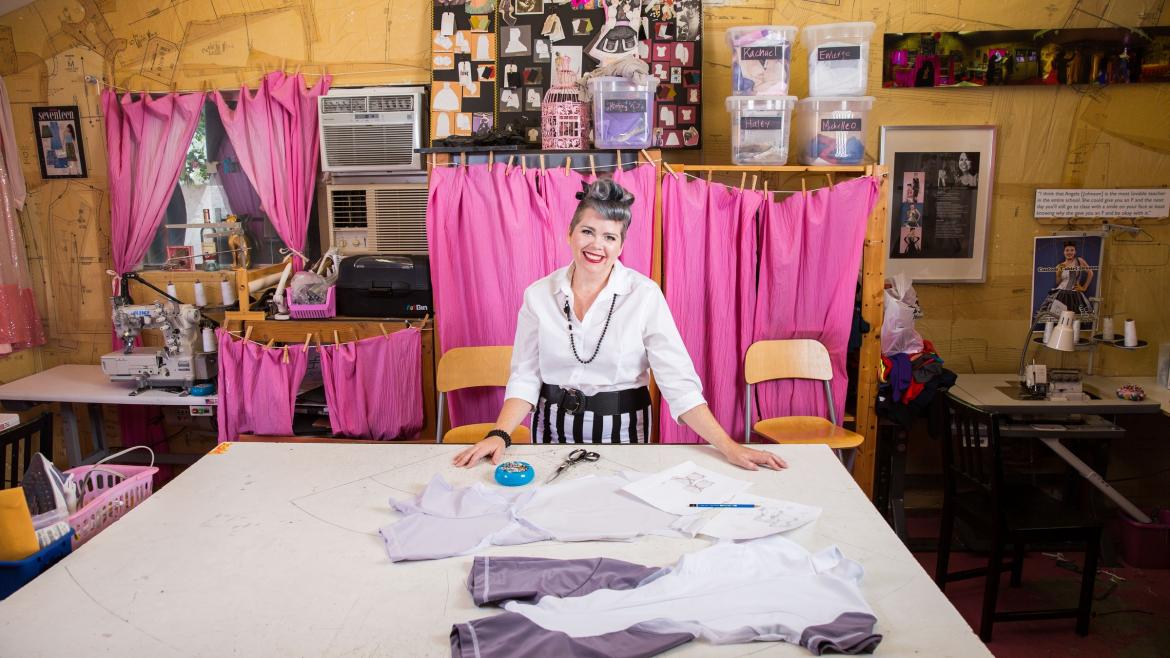
ASU instructor and fashion designer Angela Johnson with her "uniform of the future." The textile will act as a video screen, where a player’s number, team and sponsor ads would appear digitally.
Photo by Deanna Dent/ASU Now
Gore-Tex, fleece and Capilene changed mountaineering for millions, to the point where people who have never climbed a flight of stairs now saunter down the sidewalk bedecked in North Face. What will sports fashion look like in 2040?
Fashion designers, including faculty associate Angela Johnson, who teaches in the Herberger Institute for Design and the Arts, will present their designs for uniforms of the future.
“I just tried to think of what athletes are wearing now and what could be the next obvious evolution of their garments based on how things have evolved in the past until now, and where technology is headed,” said Johnson, a successful designer in her own right. “Most apparel-related technology is in the textile’s fiber abilities so I went with that, as did the majority of the other designers.”
Johnson’s creation was a jersey/jumpsuit that could be used for many sports. It’s flexible and doesn’t inhibit movement. The textile is the real focus, she said.
“The idea is that the textile will act exactly like a video screen,” she said. “The usual information that you would normally find on an athlete’s jersey like player name and number, team name and logo and sponsor logos, would all digitally appear and scroll along the body of the player like a video. The fabric has the ability to produce any image clearly as a TV screen can.”
Johnson avoided creating something that looked like it came out of a 1950s sci-fi movie. She thought it would be too campy and unrealistic.
“I decided not to because 2040 isn’t really that far into the future,” she said. “I don’t see us wearing things that are that unrecognizably normal. I think that the biggest change will be in the technology of the fibers.”
The event’s “visitations” include:
• Will big data predict the future? If Moneyball was revolutionary for finding overlooked value in past performance, will coming algorithms reliably anticipate the future?
• The future of human enhancement. Featuring today’s astonishing Paralympians whose slogans include “Sport doesn’t care who you are,” and “Disabled or super-human?”
• New sport 2040. What will the next big competitions be? And how will climate change shape new sports?
• The rise of intentional danger in sport 2040. If we conquer concussions and other perils, will some actively seek out more threat in their sport action? “Hunger Games” for real?
• Sport and fashion 2040. Color-changing? Light-canceling? Dynamic camouflage? Shape-shifting? Interactive? Invisibility? Not just for players, but especially the fans?
• The future of fun 2040. Winning is not everything. Good times matter. A lot. What will future playgrounds for kids and alleged adults and even senior citizens look like?
• The future of stadiums. Humans will always love to come together to share intense emotion. What does Las Vegas tell us about the future of our arenas?
• The future of simulation and virtuality. Fantasy football and eSports are only the beginning. Will sport have as many meanings as Orson Scott Card’s “Ender’s Game”?
• Go team! A live presentation from the Science Cheerleaders representing more than 300 NFL/NBA cheerleaders pursuing STEM careers, who will be cheering on the future of sports, introducing their new Science of Cheerleading e-book and promoting citizen science.
• “The Future of Cheating.” An interactive new sport experience, this is a live game that imitates the characteristics of cancer moving through the body.
• Especially for Sun Devils. The Curtain of Distraction 2040 that employs professional psych-out experts, materials engineers, and costumers with dastardly imaginations to help ASU win games.
If you go
What: Emerge 2016: The Future of Sport 2040.
When: 5 to 10 p.m. Friday, April 29.
Where: Wells Fargo Arena, 600 E. Veterans Way on ASU’s Tempe campus.
Admission: The event is free and open to all, but registration is requested. RSVP here: http://bit.ly/2016EmergeRSVP.
Details: emerge.asu.edu.
More Science and technology
Extreme HGTV: Students to learn how to design habitats for living, working in space
Architecture students at Arizona State University already learn how to design spaces for many kinds of environments, and now they can tackle one of the biggest habitat challenges — space architecture…

Human brains teach AI new skills
Artificial intelligence, or AI, is rapidly advancing, but it hasn’t yet outpaced human intelligence. Our brains’ capacity for adaptability and imagination has allowed us to overcome challenges and…
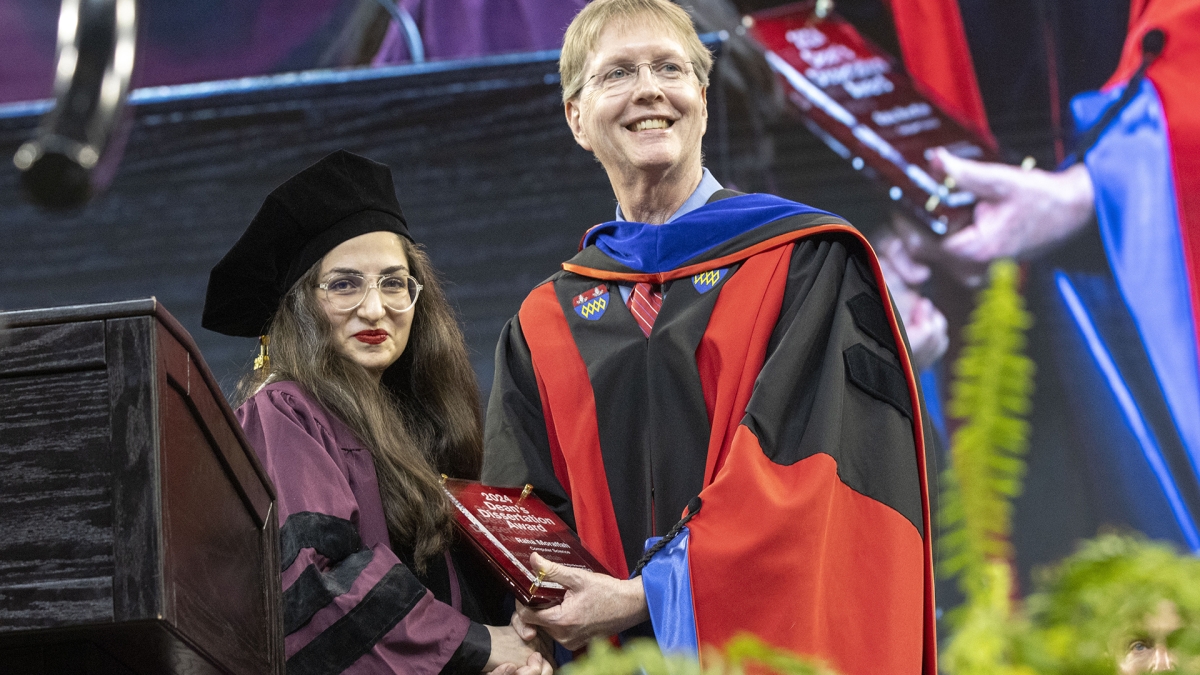
Doctoral students cruise into roles as computer engineering innovators
Raha Moraffah is grateful for her experiences as a doctoral student in the School of Computing and Augmented Intelligence, part of the Ira A. Fulton Schools of Engineering at Arizona State University…
